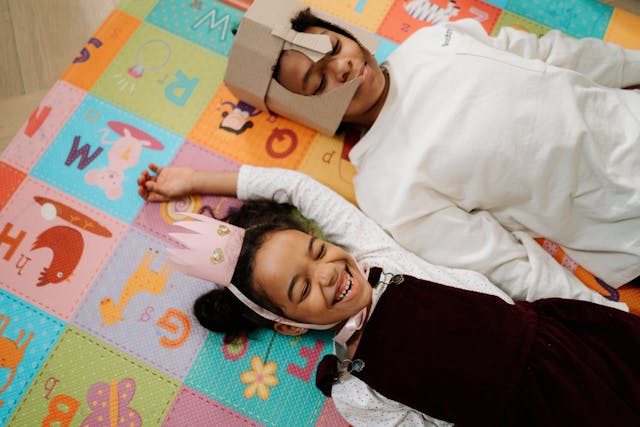I’m tired of men not understanding vulnerability. So I made a seven step checklist.

When it comes to addressing the uncomfortable topic of vulnerability, taking a slow and steady approach is best. It is a daunting concept for many, with even the mere thought of it bringing about fear. This can lead to a habit of avoidance, making vulnerability seem unattainable.
Establishing a solid foundation in all relationships is crucial, and one way to do so is by taking things slow. It is important to deliberately invest time in getting to truly know your partner, beyond just superficial details like their dog preferences or favorite wine. This in turn will help build trust, respect, and emotional intimacy, which will be beneficial in the long run.
However, it is important to avoid the belief that personal growth must occur in a linear fashion or that there is a specific formula for how a relationship should progress. Often, the societal narratives we are fed promote a one-size-fits-all approach to adulthood.
In reality, there is no correct way to cultivate vulnerability, but some useful strategies can assist in nurturing your relationship with both yourself and your partner.
Put Yourself First

Embracing personal vulnerability is a crucial aspect of developing and maintaining emotional well-being. It would be counterproductive to try to cultivate vulnerability in relationships without first understanding it within ourselves. But what exactly does vulnerability entail? According to Brené Brown‘s book “Daring Greatly,” vulnerability is the bravery to “show up and be authentically visible.”
Brown‘s words remind us that prioritizing self-awareness and self-care is crucial. This means embodying a strong and confident attitude at all times, without taking any breaks. It also means fully embracing your unique qualities and recognizing your worth. While this may be challenging, it has the potential to be life-changing. The good news is that the best place to begin is within yourself. Personal vulnerability is a fundamental aspect of personal growth and emotional well-being. It allows us to form meaningful connections with others and to cultivate a sense of community. Whether it is with friends, family, or romantic partners, most people strive for deep and genuine relationships. The significance of vulnerability should not be underestimated. By starting with yourself and addressing any barriers to vulnerability, you will be better equipped to navigate difficult situations with your loved ones.
Have An Authentic Approach
Assessing one‘s own susceptibility in relationships is crucial; the process of embracing vulnerability should involve introspection and outward action. This serves as a simple starting point to gauge how to proceed. A significant obstacle when it comes to being open and embracing a practice of complete vulnerability is fear, as well as the pervasive imposter syndrome.
Coined in academic circles, the term imposter syndrome has gained widespread attention in discussions on mental well-being.
Circa 1978, Georgia State University researchers Pauline Clance and Suzanne Imes conducted a groundbreaking study that shed light on a common yet unrecognized phenomenon. Their qualitative research was the result of five years of interviews with over 150 women from different backgrounds.
The goal was to understand why highly accomplished women in fields such as medicine, law, and social work shared a similar fear – the fear of being exposed as intellectual frauds. Today, this fear is known as imposter syndrome and is a well-known phrase in popular culture.
Despite the passage of time, imposter syndrome continues to resonate with women from different generations, from millennials to Gen X. While acknowledging the reality of this syndrome and its potential to impact one’s sense of self, it is also important to recognize that vulnerability remains a part of personal and interpersonal growth.
Accept Every Emotion

Practice Being More Compassionate With Your Partner
Once you acknowledge your emotions, you may experience secondary feelings that can be overwhelming. Instead of trying to tackle them head on, it can be helpful to take a step back and allow yourself to let go of some control. During this time, it is important to be self–compassionate and view these experiences from a bigger perspective. Treat yourself with kindness and understanding, just as you would a close friend or partner.
This can include acknowledging and validating your emotions rather than judging or ignoring them. Taking care of yourself during tough times is crucial.
Furthermore, it is crucial to also show compassion towards your partner. According to Dr. Saleh, partners who are patient, vulnerable, and open with each other can create a safe and secure environment where they can express their feelings and be held accountable. This kind of deep and meaningful connection is essential for personal growth in a relationship. Each partner should feel accepted and supported, with the other actively listening and caring for their emotions unconditionally.
Remembering that you deserve compassion and love from your partner can help you navigate any challenges that may arise.
Take Time For Intentional Reflection
Once you have started to develop a deeper understanding of yourself and have begun to show yourself some self-love, it is time to roll up your sleeves and do the real work. While it may sound like a cliché, these phrases hold truth.
For instance, have you noticed yourself flinching at the sight of blood or accidentally laughing at inappropriate moments? Take a step back and reflect on these behaviors, both positive and negative. Try to dig deeper and identify the underlying emotions and thoughts behind your actions. This introspection can provide valuable insight into your inner self and motivations.
Making reflection a consistent part of your routine is key. It should be active and intentional, rather than a passive afterthought. Even if it‘s just five minutes here or ten minutes there, setting aside designated time and space for reflection will eventually turn it into a habit. If writing is your thing, consider journaling as a means of processing your thoughts and emotions.
For those who may not enjoy writing, practicing meditation or mindful self-reflection can also be helpful. Instead of constantly scrolling through social media, try downloading a meditation app and engaging in reflective exercises with your partner. Motivate each other to be open and vulnerable in your reflections as you strive for growth.
Consider Seeing A Therapist
The path towards embracing vulnerability is not a straight line and often involves chaos. Sometimes, it can seem like a never-ending cycle, which can be exasperating. However, recognizing your self-worth can transform your experience. It is common to feel overwhelmed at the thought of going through this journey. There will be ups and downs along the way. Seeking guidance or having a plan is helpful, especially if this is your first time delving deep into your emotions.
Just like we would seek help for physical issues, it is perfectly reasonable to seek professional help, whether individually or with your partner, on this path to vulnerability. It is highly recommended to have a licensed therapist assist you on this journey. Why seek professional help?
According to Dr. Saleh, a therapist can provide valuable active listening skills, such as using I-statements and clarifying understanding instead of jumping to conclusions. It is crucial to understand that if your partner is not used to vulnerability in your relationship, opening up may not automatically change their behavior. Therefore, patience and consistency are key.
Above all, it is essential to process each conversation and consider your partner‘s perspective for improvement. Whether on a therapist‘s couch or going through the process on your own, it is important to remember that vulnerability is a journey.

Just Enjoy The Process
Being vulnerable takes time, but with practice, it becomes easier.
The more you work on sharing your true self, the less daunting it will feel. But how do you know you‘re on the right path? A good first step is to look for examples of emotional vulnerability. Embrace difficult emotions like shame, guilt, rejection, sadness, and fear.
Have the courage to process these feelings with a professional or your partner. Communicate when something has upset or triggered you, and be willing to set boundaries. Remember, your partner loves you, but they can‘t read your mind. Take ownership of your mistakes and strive to do better. In this journey, expect to say or do things that might hurt others, but be accountable for your actions.
Finally, openly share personal things and be transparent. The purpose of vulnerability is to deepen your relationship with yourself and your partner. With time, it will become second nature, and sharing your inner self with those you love will be worth it.
Related Posts

Any Man Who Dedicates His Life To A Woman is Dumb As F*ck. And Here Is The Proof.
@motivation.mentallity What women do in love. #lifelessons #dating #love #relationship #relationshipadvice #lifeadvice ♬ original sound – Motivation Central. Angry rant

Who Is Kamala Harris? Why Is She Unqualified For Her Position?
Kamala Devi Harris[b] (born October 20, 1964) is an American politician and attorney who has been the 49th and current vice president







I don’t think the title of your article matches the content lol. Just kidding, mainly because I had some doubts after reading the article.
Can you be more specific about the content of your article? After reading it, I still have some doubts. Hope you can help me.